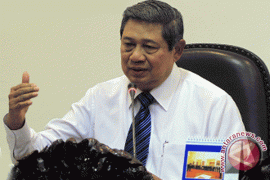The continuing debt crisis has created fear that the adverse effects of the global economic crisis will translate into higher pressures on the Asian region, particularly Indonesia whose economy is now thriving.
It is feared that Indonesia whose economy is predicted to grow over 6.5 percent in the second semester of 2011 will likely be affected by the global crisis even if its exports to the two regions only account for 30 percent. About 70 percent of its exports go to the Asian region.
Therefore, the Indonesian government will continue to keep a watchful eye on developments while reducing its debts/long-term borrowing and giving priority to domestic financing. Indonesia is now managing its debts well, reducing its borrowing and using domestic financing.
The government is also preparing instruments to channel the capital inflows not only into the financial field but also into the real sector, particularly development of infrastructure.
Capital inflows could be invested not only in short-term portfolios or in other financial sectors but also in development of infrastructure.
Chief Economic Minister Hatta Rajasa said that the country`s domestic economy at present was relatively safe and in good condition. The government had prepared a management protocol scenario in the face of possible impact of the global economic crisis on Indonesia.
"The Indonesian economy is unlikely to be impacted directly and we see that, in case a worst scenario is taking place, our position is still strong and safe, yet we have to remain alert," the minister said.
Hatta said that the government`s management protocol to face crisis this time was better than that in 2008. Besides, the government had also established better cooperation with the business world and macro economic conditions were now more stable than that in 2010.
"State-owned firms can buy back state debentures (SUN) through the Bond Stabilization Framework (BSF) scheme. We also have a surplus balance of budget and the central bank (Bank Indonesia/BI) can take action if it is needed. So, the present conditions are far better than those in 2008," said Hatta.
The government is also determined to manage well its debts and reduce its long-term borrowing by giving priority to domestic financing. "Our debts are well managed. We have stressed that we will reduce our debts and opt to domestic financing," Hatta said.
He said that if the United States realized its Quantitative Easing (QE) monetary policy options it was expected that funds would flow into the emerging markets, including Indonesia.
For that purpose, the government is preparing an instrument so that the capital inflow could be invested not only in the financial sector but also in the infrastructure field. "We have to do our best so that it would not be invested in the short-term financial and other portfolio investment sectors. We have to make the funds invested in the infrastructure sector, we should prepare an infrastructure fund scheme. We will discuss it soon," he said.
In the meantime, Finance Minister Agus Martowardojo explained that the global economic developments which would affect the Asian region would take place in the coming three to four years only.
Yet, Indonesia`s economy has reflected a better condition with a growth reaching 6.5 percent in the first semester of 2011 and this growth could be maintained in the third quarter until the end of the year.
"This means that our economic conditions are better than those of advanced states which continue to correct their economic growth downward. Not to mention if we are able to overcome constraints to infrastructure development and other aspects that hamper investment in Indonesia," the finance minister said.
The minister said that the government was preparing the needed response to prudently manage its economy by increasing supervision on the financial industry and capital market in Indonesia.
He said that the government would give priority to domestic financing and long-term external debts management in an effort to create healthier budget. "We are discussing healthier management of external debts and priority to the use of domestic funding," Agus said.
He said the government needed healthier management to put in order the ownership by foreign investors of state debentures and to keep an eye on possible capital outflow.
"We understand that our state debentures attracted many investors and now about 30 percent of them have been owned by foreign investors so that we need to carefully manage it," the finance minister said.
According to Debt Management Director of the Ministry of Finance Rahmat Waluyanto, the government will focus on increasing domestic financing by issuing conventional bonds in the domestic market and would no longer depend on the market overseas.
In an anticipation of the capital inflow into Indonesia, Rahmat said the government was considering issuing bonds for infrastructure financing. "For capital inflow, we will issue bonds at home not abroad," he said.
He said that economic conditions in Europe and the United States were still uncertain. Thus the government has to pay attention to the internal conditions of Indonesia whose economy so far was supported by the consumption sector.
(T.H-CS/Uu.A014/HAJM)
Reporter: by Cecep Syaifudin
Editor: Priyambodo RH
Copyright © ANTARA 2011











